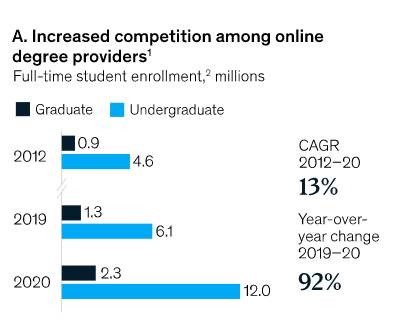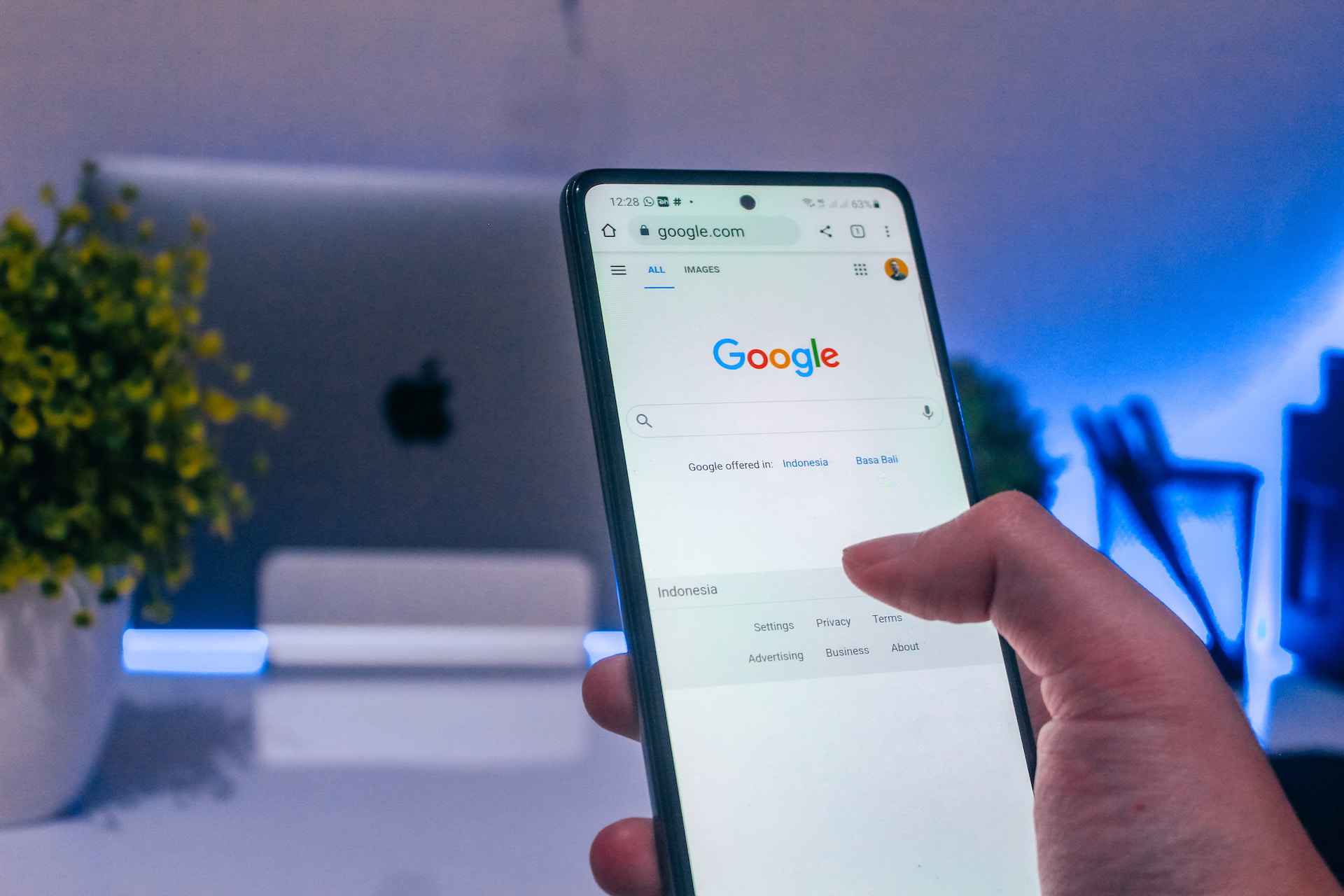SearchEye Launches Pro Membership
Flat Price Mentions, Digital PR, Exclusive Opportunities, access to 5,000+ opportunities.
Get the lowdown on the highest CPC keywords on Google in this post. Also, learn the different tips and tricks to elevate your PPC campaigns.


Understanding the cost of clicks is essential for marketers and businesses when it comes to digital advertising. In online advertising, Google reigns supreme, and knowing which keywords are the most expensive can significantly impact the success of a campaign.
A staggering 97 percent of Google’s revenue comes from pay-per-click (PPC) ads. This amounts to a massive $147 billion in revenue from search, display, and video advertising in 2021 alone.
Choosing the right target keywords is crucial for effective digital marketing campaigns. Businesses can optimize their ads by focusing on the most relevant keywords to tap the right audience.
However, the cost of keywords plays a significant role in this process. The more in-demand a keyword is, the higher the average cost per click (CPC) becomes. This average CPC directly affects a campaign’s budget, profitability, and return on investment (ROI).
Gaining insights into these costly keywords allows marketers to make informed decisions and strategize their campaigns more effectively.

We must first comprehend PPC and CPC concepts to understand the significance of expensive keywords. PPC is a digital marketing model that allows advertisers to pay for every ad click. This model will enable businesses to reach customers and drive traffic to their websites or landing pages.
On the other hand, CPC is the cost advertisers pay every time there’s a click on the ads. It determines the cost-effectiveness of a PPC campaign and directly impacts its budget. By carefully managing CPC, businesses can ensure they maximize their ad spend.
The cost of keywords is an essential factor in PPC campaigns. Keywords with high demand and intense competition tend to have higher CPCs. Understanding the cost of keywords enables marketers to allocate their budgets wisely and choose the keywords that provide the best value for their advertising investment.
Additionally, calculating the cost per acquisition (CPA) allows businesses to determine the profitability of their campaigns and optimize their targeting strategies.
Key Takeaways
|

Now, let’s delve into some of Google’s most expensive keywords and their associated industries, according to this WordStream infographic. These keywords often come with a hefty price tag due to high competition and the potential for significant returns on investment for businesses.
The legal industry is known for having the most expensive keywords in digital advertising. The average CPC for keywords like “attorney” and “lawyer” is around $42.51, significantly higher than many other industries. Several factors influence the increase in the cost of keywords in the legal field.
One of which is the potential financial gain for lawyers and law firms. Acquiring new clients in the legal industry can lead to substantial payouts, especially in cases involving personal injury or vehicle accidents. Lawyers are willing to shell out money for clicks on keywords related to these cases because the potential ROI can be significant.
Keywords like “mesothelioma” and “car accident attorney” are costly due to their association with high-value legal services. For instance, pursuing legal action in mesothelioma cases can result in substantial compensation for victims.
Car accident cases that use “personal injury attorneys” and “truck accident lawyer” keywords can involve significant financial settlements, making them sought after by lawyers. The same applies to bail bonds and personal injury attorneys.
In addition to the potential financial gains, the legal industry is also highly competitive. Many law firms and attorneys are vying for the attention of potential clients. It leads to increased competition for ad space and drives up the cost of keywords.
Furthermore, the legal industry relies heavily on lead generation and client acquisition through online advertising. Law firms understand the value of attracting clients through digital channels. They are willing to invest in expensive keywords to improve their visibility and reach their target audience effectively.
The finance industry is another sector where keywords come with a hefty price tag. Keywords like “insurance,” “loans,” and “mortgage” are among the most expensive in online advertising. They have average CPCs of $54.91, $44.28, and $47.12, respectively.
One factor contributing to the high CPC in finance is the value of the customers acquired through these keywords. Insurance companies are likely to pay a premium for every click because the customers they acquire have a high lifetime value.
You have to understand that insurance policies often involve long-term commitments. There’s also the potential for repeat business, and ongoing premiums justify the higher cost of acquiring customers through these keywords.
Keywords related to loans and mortgages, such as “payday loans” and “car insurance,” have the highest costs because these products have high transaction values. Lenders understand the potential return on investment when securing a customer looking for loans or mortgages. They are willing to invest more in acquiring these customers through online advertising.
Like the legal industry, competition is high in the finance sector. It’s likewise worth noting that the finance industry is heavily regulated. Advertising in this sector becomes more complex and costly due to the additional layer it introduces. Advertisers in finance need to comply with various legal and regulatory requirements, increasing the cost of running campaigns and bidding on keywords.
Effective keyword targeting and campaign optimization are crucial for maximizing ROI in the finance industry. Financial advertisers must carefully research and select relevant keywords that align with their target audience and specific financial products or services. Financial companies can attract users with higher conversion rates by focusing on highly targeted keywords.
The education industry is known for intense competition. Keywords associated with degrees, online colleges, and online schools come with high CPCs. This is because there’s a significant demand for information about educational institutions, courses, and degrees.
One of the reasons for the high CPC keywords in the education industry is the long-term value associated with acquiring students. Education is often considered a long-term investment, and businesses in this sector understand the potential lifetime value of each student. The value of a student extends beyond their initial enrollment. Students may continue to enroll in additional courses or pursue advanced degrees.
Moreover, the education industry has seen a rise in online and distance learning, particularly in recent years. This shift has further increased the competition for online colleges and schools, driving up the cost of education keywords in this space. With the flexibility and convenience offered by online education, more students are turning to the internet to find suitable programs and institutions.

Furthermore, educational institutions often have specific target demographics and niches they aim to reach. This adds a layer of competition and can contribute to higher CPCs for keywords that align with these target audiences. Advertisers must strategically target relevant keywords to ensure they reach the right audience and maximize their chances of attracting potential students.
Advertisers must adopt effective strategies to optimize their campaigns and maximize their return on investment.
Keywords related to home improvement services, such as HVAC, restoration services, water damage, and small businesses in the construction sector, often come with higher CPCs.
One of the reasons for the higher CPCs in the home improvement industry is the potential for significant contracts that can arise from each closed deal. Home improvement projects often involve substantial investments from homeowners, whether renovating a kitchen, remodeling a bathroom, or repairing water damage. They want to attract potential customers more likely to convert into lucrative contracts.
The demand for home improvement services is consistently high — the emergence of different generations reaching important milestones. You have millennials buying homes and empty nesters renovating their childhood bedrooms. The advent of technology also pushed some to remodel their homes to fit their current lifestyle. These events presented a favorable growth opportunity for the home improvement sector.
According to NPD, dollar sales in the home improvement industry jumped by 22 percent in 2020.
The retail industry is known for its fierce competition, which holds true regarding the cost of keywords.
E-commerce statistics reveal the staggering number of businesses operating in the online retail space, all vying for the attention of potential customers. With countless retailers competing for limited ad space, the cost of keywords naturally increases.
Seasonality plays a significant role in the retail industry. Demand for specific products tends to fluctuate throughout the year. Peak seasons such as Black Friday, Christmas, or other holidays drive up competition for ad space. During these periods, retailers ramp up their marketing efforts, from Google Adwords to social media, intensifying the competition for relevant keywords and driving up costs.
Retail purchases often involve higher transaction values than other industries, such as entertainment or news. When consumers make significant purchasing decisions, businesses are willing to invest more in SEO and advertising to capture those valuable customers.
Instead of targeting only the most expensive keywords, try targeting long-tail keywords that are still relevant to your target audience. These related keywords typically have lower search volumes but lower competition and CPCs.
Tips for Targeting the Most Expensive Keywords

Targeting the most expensive keywords requires a strategic approach to maximize ROI. Here are some tips to consider.
A keyword tool is essential for conducting thorough keyword research to support your digital marketing efforts. These tools offer valuable features that help generate a wide range of specific keywords relevant to your target audience. It allows you to discover high-potential keywords that align with your campaign objectives and audience preferences.
Keyword tools provide insights into search volume. This information lets you gauge the popularity and demand for specific keywords, helping you prioritize your targeting efforts. They also offer data on the competition level for each keyword, allowing you to adjust your strategy when bidding on those keywords.
They present opportunities for identifying more specific long-tail keywords. As such, they are less competitive than generic terms. These long-tail keywords often have lower search volumes but can be highly valuable in reaching a more targeted audience. Incorporating long-tail keywords into your campaigns improves visibility among users searching for specific products or services.
Quality score is a metric used by advertising platforms, such as Google Ads, to assess the quality and relevance of keywords and advertisements. During keyword bidding, the quality score assigned to that keyword by the advertising platform influences its ad position, affecting the CPC. A higher quality score generally leads to better ad rankings and lower CPCs.
Improving quality scores is essential because it can positively impact ad performance and cost efficiency. Ensure the keyword aligns closely with the ad’s messaging. Creating compelling ad copy and using relevant ad extensions can help increase CTR and improve quality scores.
Furthermore, segmenting keyword lists based on niche and relevance can improve quality scores. Businesses can create highly targeted ad campaigns by organizing keywords into smaller, tightly themed groups. This allows for more tailored ad copy and landing pages, improving relevance and higher quality scores.
Continuously testing ad variations, refining targeting, and monitoring performance metrics can identify areas for improvement and ensure that the ads are consistently relevant and effective.
Optimizing landing pages is crucial to any digital marketing campaign, especially when targeting expensive keywords. When your landing pages align with the targeted keywords, it enhances the relevance and quality of your ads.
Ensure the content on your landing page closely matches the targeted keywords. Use the targeted keywords in headings, subheadings, meta tags, and throughout the copy. This alignment helps search engines understand the relevance of your landing page to the keywords, positively impacting your search engine rankings.
Focus on delivering valuable and relevant content to visitors on your landing page. Address their needs, provide solutions, and highlight the benefits of your product or service.
Consider implementing a link-building strategy to improve the authority and visibility of your landing page. Seek opportunities to have relevant and reputable websites link to your landing page. This strategy can enhance your organic search rankings and drive more traffic to your page. Check the potential gains of doing link inserts as an adjunct to your keyword targeting.
Consider the search volume when selecting keywords. Keywords with higher search volumes generally indicate a higher level of interest from potential customers. Targeting keywords with sufficient search volume increases the likelihood of driving more traffic to your offers and achieving better results.
Businesses can navigate the world of expensive keywords more effectively and achieve better results from their PPC campaigns.
Understanding the high cost of clicks and strategically targeting keywords is essential for successful PPC campaigns. By investing time and effort in researching and optimizing keyword selection, you optimize your ad spend and achieve higher ROI.
Sign up with SearchEye today and discover the power of AI-driven keyword optimization.
Flat Price Mentions, Digital PR, Exclusive Opportunities, access to 5,000+ opportunities.
Writing is an art. Each writer brings a unique style when crafting their blogs. However, a blog’s structure can significantly. [Read more]
Search engine optimization (SEO) efforts require a combination of different internal adjustments and external connections and collaboration. Coordinating a successful. [Read more]
Content creation and management have grown exponentially in the past years. With the advent of AI in content generation, it’s. [Read more]
